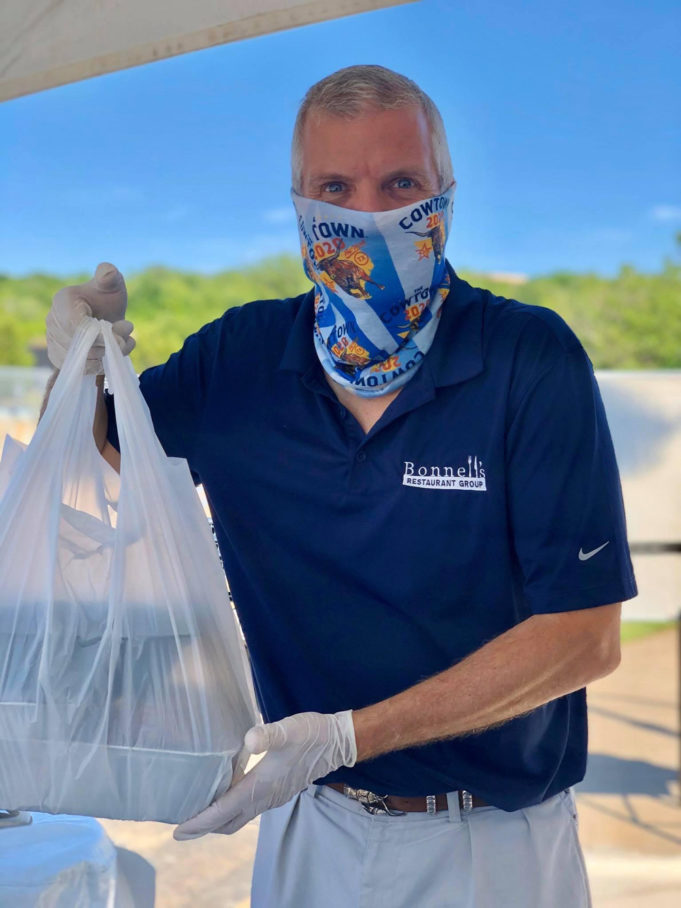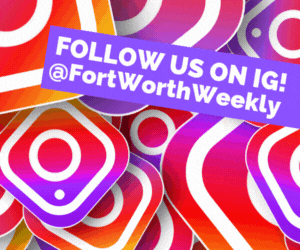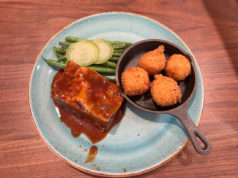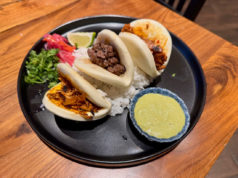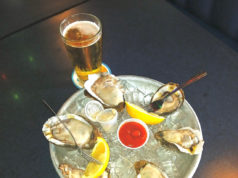We’re shattering records again. The U.S. is averaging 400,000 new COVID cases a day as the omicron variant continues to disrupt every aspect of life for those taking precautions. In Texas, officials have been reluctant to reintroduce shutdown orders for businesses, schools, and public places.
As is the case with every dark turn of our new plague — one that’s cost more than 800,000 people their lives — the service industry is the first in the business sector to feel the full brunt of its impact. Hospitality workers are back in the same leaky life raft as March of 2020.
Many restaurants have announced temporary closures, modified service, or vaccine requirements for indoor dining — difficult decisions that echo industry mandates from the pandemic’s earliest days.
Across the country, only a handful of cities like Boston, Chicago, New York, and San Francisco have mandated vaccine policies for indoor diners. Locally, county and city officials have bristled at the idea of taking sweeping action as they did more than a year ago.
Along with COVID, many restaurants are still dealing with inflation, pandemic supply delays, and staff shortages, issues that led to the closure of more than 90,000 restaurants in 2020, according to the National Restaurant Association.
In North Texas, multiple bars and restaurants have chosen to close for a week or more as COVID has ripped through staff.
Chef Jon Bonnell was forced to shut down his flagship eatery, Bonnell’s Fine Texas Cuisine, for five days, including New Year’s Eve — traditionally one of the two biggest revenue-generating days for restaurants. He estimates his business lost $90,000 over the course of the week, between revenue, wages (he still paid everyone), taxes, spoiled product, and more.
After two of his employees tested positive for COVID, he furnished his entire staff with rapid tests and asked them to report back.
“I said, ‘Anybody who has the slightest sniffle, tingle, cough, anything at all, take a test right now,’ ” he said. “As soon as the number got so high that we couldn’t staff the restaurant, I just said, ‘You know what? We don’t have a choice.’ It would’ve been the same thing if we had that many people get the flu.
“It’s a very simple rule,” he added. “If you’re sick, you don’t come to work right now. Five years ago, if you had a little bit of a fever, you took an Advil and powered through it. Nobody would’ve said a word. I did that all the time. We just live in a different time now.”
Bonnell has continued to serve curbside pickup meals, as he has since the early days of the pandemic. While that income has been welcome, it hardly compares to what he makes in his open dining room.
Both The Boiled Owl Tavern and its sister bar Tarantula Tiki Lounge also shut their doors for a few days due to widespread staff illnesses. Like Bonnell, Steve Steward, who co-owns the Tarantula and tends bar at the Owl, said the decision to close was just a numbers game — there weren’t enough healthy bodies to field a team.
Both bars were forced to close on Christmas day. Tarantula opened during the time of COVID, so Steward couldn’t predict how busy the newish South Main Street bar would have been. For the Owl, on the other hand, he and other workers missed out on one of their best money-making days of the year.
“That was a bummer to not open,” he said. “It’s one of those things where we’ve been doing this for almost 10 years now. This would have been our ninth Christmas, and we didn’t get to open. And anytime you close your bar, that sucks because you’re losing revenue.”
To try and curb the spread of the virus, The Boiled Owl has switched to plastic glassware. Most customers, Steward said, have accepted the change without much pushback. Besides that, the beloved West Magnolia Avenue dive bar has mostly returned to normal.
At Tarantula, Steward said he’s happy to not have to play traffic cop anymore.
“We finally got to a spot in 2021, when the masks came off, when we stopped policing where people were sitting,” he said. “And now people can walk around like it’s a normal bar. And to me, that’s how this bar was supposed to be all along. It’s supposed to be lively and a little loud, with people moving about rather than just kind of like sitting down in a nice restaurant the way it was in 2020.”
Despite losing revenue, Bonnell sounded optimistic about the future of COVID thanks to its latest mutation.
“Omicron is more contagious, less severe,” he said. “That’s good news on both sides, to be honest.
“I don’t think this one warrants the shutdown,” he added. “We know a lot more about [COVID]. And if you’re vaccinated, boosted, you’re a healthy person, and you don’t have specific comorbidities,” the virus isn’t as deadly. “And I’ll be honest. I’m not worried about this for me. I’ve already had all the shots. I had COVID way at the beginning. I’ve had all this. I’m a healthy guy. I still don’t want to go around spreading it.”
As of Tuesday, Bonnell said his staff is healthy and expects most of them to return to work. Neither he nor Steward expects another round of PPP loans to make up for lost business. For both, it’s a sunk cost — another hit they’ve endured on the frontlines of the COVID fallout.



